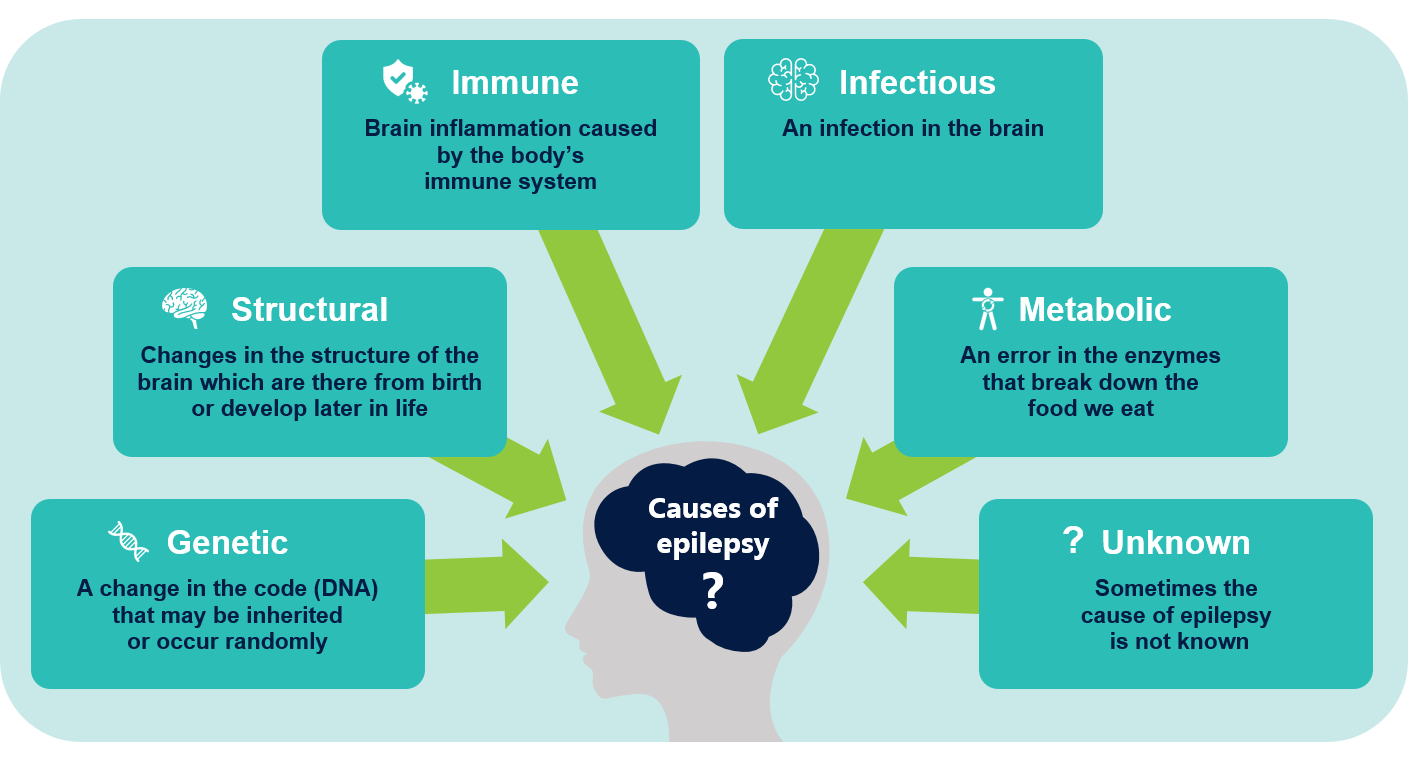Understanding genetics can be complicated. There are hyperlinks throughout this resource to try and help explain genetic words (click on a word highlighted in colour and this will link to a website explaining that word). You can also visit the links / resources menu for more resources to help explain genetics.
Epilepsy has been classified as having six different possible causes by an international group of health care professionals and scientists, the International League Against Epilepsy (ILAE).1
The figure below shows these possible causes:

Genetic changes are one of the six possible causes of epilepsy described by the ILAE.
- A “genetic” epilepsy is caused by a change in the sequence (or spelling) of a gene associated with epilepsy and is rare.
- A genetic cause means that there is a change in the instructions (or genes) that make us who we are.
Genetic testing is useful in some types of epilepsy, such as the more severe genetic epilepsies that involve other symptoms. For example:
- Intellectual disability
- Autism (level II/III)
- Behavioural issues
- Sleep disturbance
- Poor head growth (microcephaly)
- Visual problems
- Difficult to treat and require multiple medications.
These more severe epilepsies are often caused by a change in a single gene that is important in brain functioning. Your GP or specialist will decide if genetic testing might be worth considering for your child.
Occasionally where there is a clear family history of epilepsy, genetic testing may also be helpful where an inherited form of epilepsy is suspected.
For other types of epilepsy (e.g. childhood absence epilepsy, juvenile absence epilepsy, juvenile myoclonic epilepsy), there are likely a number of genetic changes that combine to increase the person’s chance/risk of having epilepsy. This is called oligogenic inheritance. This means that epilepsy may occur because of a variation in a small number of genes that may or may not be influenced by as yet unknown environmental factors. These epilepsies are often well-controlled with medications. The chance of finding one single meaningful change in one gene in these forms of epilepsy is low, and therefore genetic testing is usually not offered to these individuals or families at the current time.
Having a “genetic” epilepsy does not always mean it is “inherited”. Sometimes, the genetic changes are new changes in the person affected and have not been inherited. Further information on genetic inheritance can be found in the “Genetic Inheritance” menu.
------------
Content on this page was generated via the GenE Compass project. The following article provides more information about the project:
- Robertson EG, Kelada L, Best S, Goranitis, I, Grainger N, Le Marne F, Pierce K, Nevin, SM, Macintosh R, Beavis E, Sachdev R, Bye A, Palmer EE. (2022). Acceptability and feasibility of an online information linker service for caregivers who have a child with genetic epilepsy: a mixed-method pilot study protocol. BMJ Open, 12:e063249. https://doi.org/10.1136/bmjopen-2022-063249